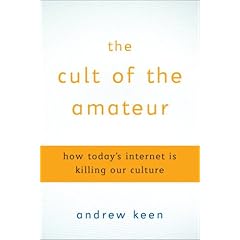
Yesterday I started reading
The Cult of the Amateur by Andrew Keen a 228 page polemic, a la Michael Gorman, against Web 2.0, blogs, Wikipedia, "citizen journalism", and mashups, and that's just in the first 50 pages. I call this a "partial response" as 50 pages is all I've read so far. I do plan on reading the rest of the book but I've been taking notes and I've got a lot to say already. At this rate I'll respond to what I've read so far and then probably not blog about the book any further. Based on how much I have to say from just over 20% of the book, I won't have the time necessary to do this five more times. So, here we go...
Mr. Keen starts out by explaining how he got to where he is regarding his opinion on Web 2.0. It all began at the Friends of O'Reily (FOO) weekend in which the current digerati were practically worshiping the concepts Keen is writing against. The point of the point of the weekend, as is Web 2.0, was to participate. Instead Keen "stopped participating and sat back and watched." I would argue that this is exactly the central problem with the book. Instead of participating and trying to change things that he doesn't like, he instead watches from the outside, sitting on the pedestal he's placed himself on, and complains about practically everything. This just turns into an "the old way was the better way" argument and won't bring many people to your side. It just makes you sound whiny and impotent.
On page 17 Keen equates intellectual property theft with stifled creativity. I don't want to turn this into a discussion of the current state of our copyright laws but when I first read this I thought "but what about mashups? They're creative." Well, Keen speaks of mashups later and views them as nothing but theft and utterly lacking in creativity. I defy anyone to listen to either The Grey Album or American Edit and tell me there's not creativity there.
On page 19, Keen gives two example of how mainstream media (MSM) has exposed information posted on blogs as being totally false yet completely ignores the fact that blogs have exposed falsehoods in MSM also. Has he forgotten the conservative bloggers that exposed the inaccuracies in 60 Minute's reporting on Bush's National Guard service record?
On page 20 Keen dives into Wikipedia and complains about the inaccuracies reported within minutes of Ken Lay's death on Wikipedia's Kenneth Lay page. He "demonstrates" Wikipedia's "problems" by quoting how the page inconsistently reported his death within the (what one assumes to be) first six minutes after his death was announced. Since this was a developing event that's hardly a great way to prove it's inaccurate. No matter what the medium inaccuracies will be reported, and later corrected, when it comes to developing stories. Go back and read things that were reported on CNN and the like within minutes of the planes hitting on 9/11. I'm sure that within the first minutes you could find some inaccuracies having been reported within MSM too.
Pages 29-30 talk about the Long Tail and how despite there being more content there is a "scarcity of talent". Now, I'm not one to argue using statistics but my theory is that there isn't a scarcity of talent, just that there's more talentless people than talented ones. So, the more people you throw into the pool the more it will seem like there's less talent. For example, if you have a group on 100 people and 20 of them have talent, that seems like a lot of talented people. However, if you have a group of 1,000 people and 200 of them are talented it seems like there's not that many talented people. 20% are still talented, it's just maybe a little harder to find them in a larger pool. Additionally, the more opportunity there is, as afforded by the tools Keen is complaining about, I would argue that the more likely a talented person is to get a chance to prove how talented they are. Not everyone needs a Doctorate in music to be a great musician.
Page 31 has Keen pointing out a central failing of blogs, as part of the long tail, is that no one is making any money at it. This assumes that all bloggers are, or at least should be, in it for the money and if they aren't we shouldn't care what they have to say. False premise. False conclusion.
Page 32 states "artificial intelligence is a poor substitute for taste" when comparing online automated recommendation systems to reviews printed in the New York Times, the Financial Times, the New Yorker, and the Chicago Sun-Times. To use an old cliche, apples and oranges. There's a difference between a review of a movie and "if you liked this, you might like this". In the first case, with limited exception, the review is of the single film (album, book, etc.) while the recommendation is in a context of other films (albums, books, etc. and in many cases cross-referencing the different types of media. When did you last hear Roger Ebert say that if you likes that album, you'd like this film.)
"The professional is being replaced by the amateur, the lexicographer by the layperson, the Harvard professor by the unschooled populace" Keen says on page 37 in his comparison of Wikipedia to the Encyclopedia Britannica and the Oxford English Dictionary. I would counter that the idea of Wikipedia was not to replace but to supplement. Those that don't understand that difference should be instructed in it, not told to ignore one source out of hand.
On page 40 Keen brings up the often used story of essjay, a well-known Wikipedia editor "was discovered to have made false claims on his Wikipedia user page and in a phone interview concerning his age, job, activities, background, and academic credentials." (This quote is from the linked Wikipedia article, not Keene's book as I feel it described the situation better than what Keen wrote.) The trouble is, neither Keen, nor anyone else I've read (including the Wikipedia article itself) whether essjay's edits were ever incorrect. My suspicion is that he was good at what he did as all anyone can attack him for is that he lied about his credentials. I'm not justifying his lying but think about it: would anyone have taken him seriously if he had told the truth. I'm sure Mr. Keen wouldn't have.
In Keen's overly brief bio of Jimmy Wales on page 41 he says "...Wales first discovered the Internet as a teenager playing Multi-User Dungeon (MUD) fantasy games such as Zork, Myst, and the Scepter of Goth." This is just wrong. As far as I recall neither Zork nor Myst were connected to the Internet nor were they MUDs. Zork came on 5.25" floppies and Myst on CD-ROM. (Correct me if I'm wrong but it looks like someone didn't do their research on this statement...) Also, the way it's written it implies that anyone who played online D&D-like games as a kid obviously has something wrong with them today as an adult.
On page 45 Keen practically blames Wikipedia for layoffs at Encyclopedia Britannica and "no doubt more lay-offs are to come". If Wikipedia's to blame so is Microsoft for putting out Encarta (both on CD/DVD and online). Let's ignore the US economy too.
On page 47 Keen is clear to point out (parenthetically) that "in February 2007, the Middlebury College history department banned students from citing Wikipesia as a source for research papers." Good for them. However, if they're allowing college students to cite an encyclopedia they're still being irresponsible. Even Jimmy Wales says that Wikipedia shouldn't be used as a primary source. If you need to set up rules like this for your students there's a problem with how and what they're being taught, not a problem with a particular resource.
Lastly, on page 49, Keen quotes Al Saracevic, deputy business editor of the San Francisco Chronicle, saying the following: "In America, bloggers don't go to jail for their work. That's the difference between professionals and amateurs." The date on this quote is "fall 2006" so I'll possibly cut Keen some slack, but this statement is no longer true, and may not have been at the time it was said. Check out this article from the Washington Post about blogger Josh Wolf who, by March 2007 had spent six months in jail for contempt of court "for refusing to turn over a videotape he shot of a violent San Francisco demonstration against a Group of Eight summit meeting." Six months as of March would have put him behind bars in October (the fall of) 2006. Mr. Saracevic may not have been aware of the case at the time, or it may have happened after he made that statement but it's both no longer true and chilling.
Like I said, I'm going to finish reading the book if for nothing else than to better know the arguments of that side of the debate. I am a teacher after all and should know these things whether I agree with them or not. However, I'm finding myself wishing it was over already. The book is unashamedly one-sided and so far contains not a single "well maybe the other side has a point".
When I posted on Twitter (not mentioned in the book, I checked the index) that I was reading this I was thanked for "taking a hit for the team." After just a 10 pages I responded that it felt "more like I'm taking a bazooka to the face."
Labels: books, web2.0


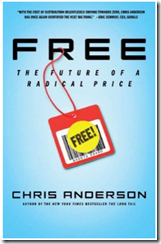
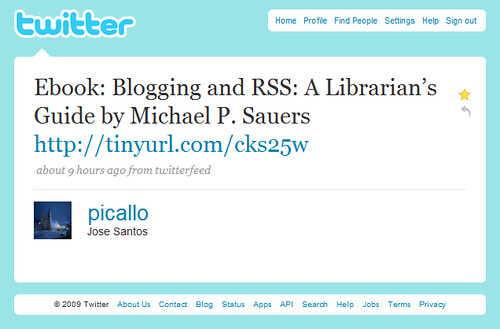
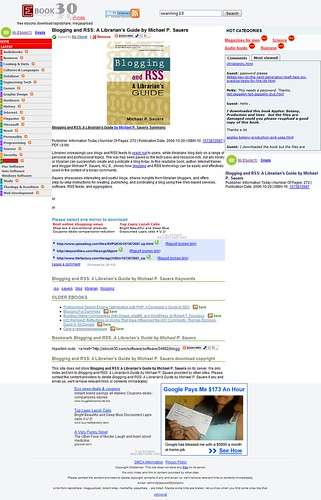
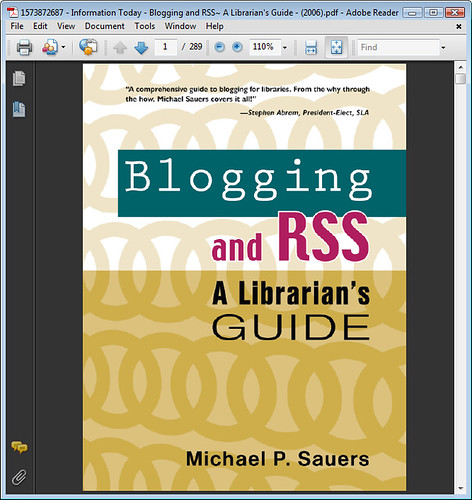




 Add a photo, create a dedication, and we'll do the rest.
Add a photo, create a dedication, and we'll do the rest. 
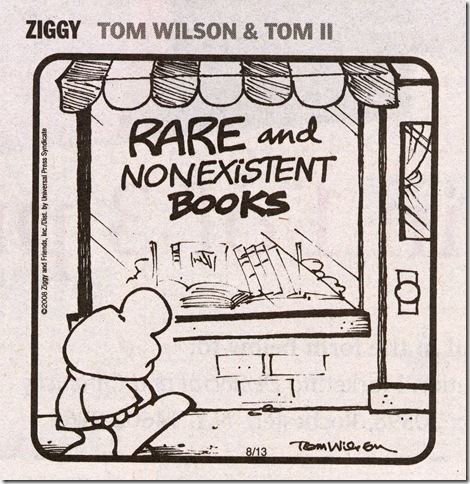
 The CC-licensed
The CC-licensed






